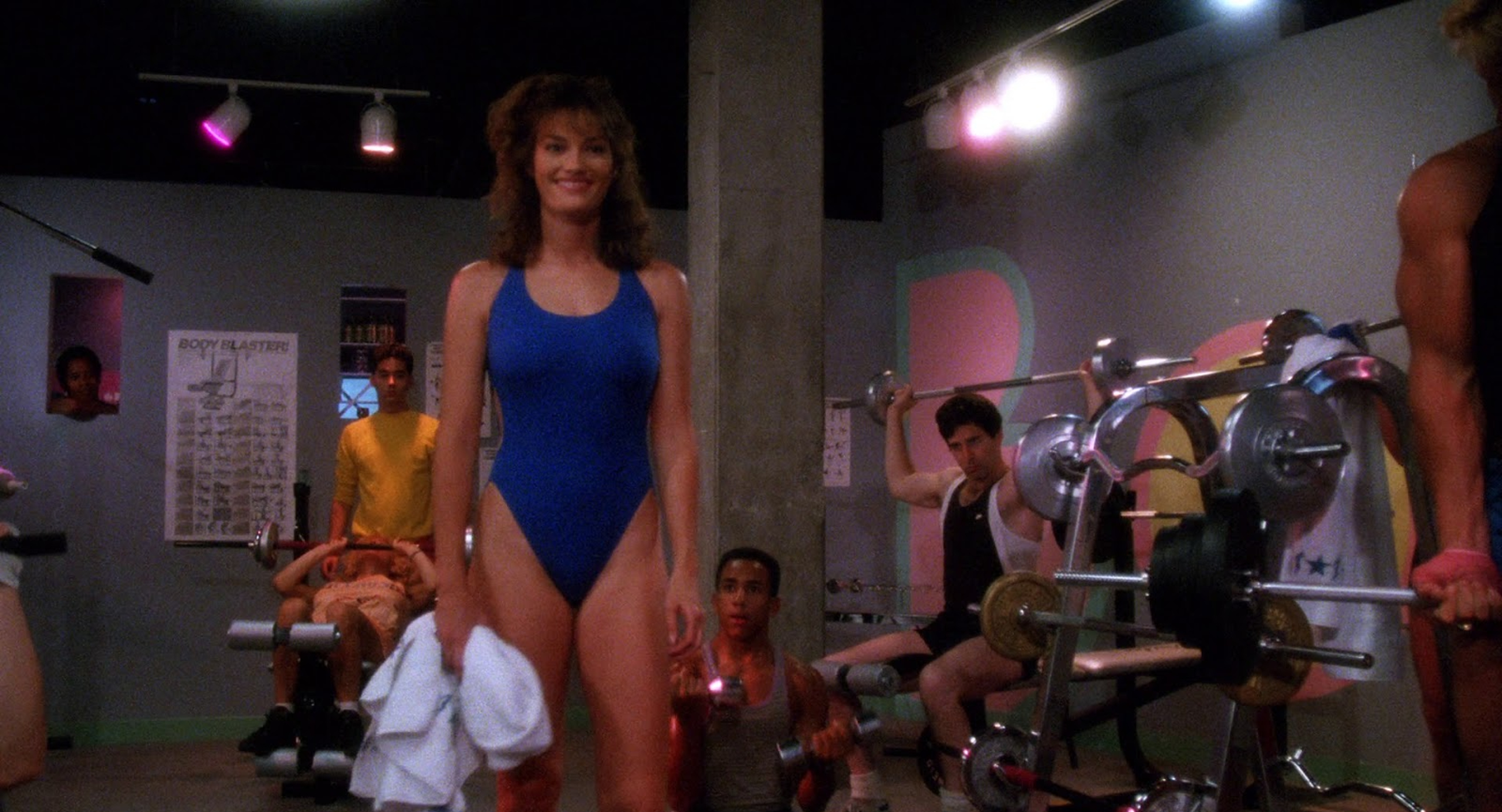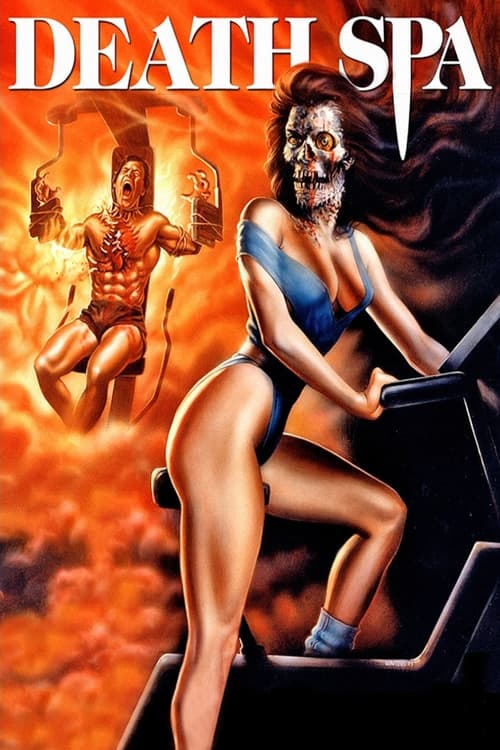Death Spa – Film Review
Published January 20, 2024

Death Spa, directed by Michael Fischa, is a cinematic disaster that attempts to blend horror, mystery, and supernatural elements within the confines of a health club. Released in 1989, this film is a prime example of how misguided ambition and poor execution can lead to a cinematic train wreck. From the disjointed plot to the laughable special effects, Death Spa fails to deliver on multiple fronts, leaving audiences more puzzled than entertained.
At its core, Death Spa revolves around a haunted health club named Starbody Health Spa. The film begins with a tragic incident where a woman is severely injured in an accident involving a malfunctioning exercise machine. Soon after, the club’s owner, Michael Evans (William Bumiller), begins to suspect that supernatural forces are at play. The plot unfolds as a series of unconnected events, and the attempt to weave together horror and mystery elements falls flat. The narrative lacks coherence, leaving the audience struggling to follow the storyline.
The characters are poorly developed, and their motivations remain unclear throughout the film. Michael Evans, in particular, fails to evoke any empathy or interest from the audience. The dialogues are cringe-worthy, with poorly written lines that add to the overall lack of substance in the storytelling. Death Spa’s plot is not only convoluted but also lacks any genuine tension or suspense, making it a forgettable and unengaging experience.
While Death Spa doesn’t completely falter in the cinematography department, it certainly doesn’t redeem itself. The film makes use of the neon-lit, extravagant aesthetics popular in the late 1980s, trying to create an atmosphere that should be both eerie and glamorous. However, the execution is mediocre at best.
The lighting is inconsistent, veering between overly bright and excessively dark scenes, making it difficult to focus on the action. The cinematography fails to build a sense of dread or tension, missing crucial opportunities to elevate the film beyond its lackluster script. The special effects are laughable, even by 1980s standards, and contribute to the unintentional comedy that permeates the movie.
The performances in Death Spa are uniformly subpar. William Bumiller as the lead struggles to convey any emotion or conviction, making it difficult for the audience to invest in his character’s plight. The supporting cast delivers forgettable performances, with wooden line delivery and exaggerated reactions that border on the absurd. The lack of chemistry among the actors further hampers the film’s attempts at emotional engagement.
The film introduces a series of unexplained and bizarre characters, from an eccentric psychic to an over-the-top aerobics instructor, none of whom add any depth or credibility to the narrative. The cast seems trapped in a poorly written script, unable to salvage the film with their performances.
The soundtrack of Death Spa, composed by Peter Waldman, attempts to create a haunting atmosphere to complement the horror elements. While the synthesizer-heavy score does capture the essence of the 1980s, it ultimately fails to enhance the viewing experience. The music often feels disconnected from the on-screen events, failing to create the tension necessary for a horror film.
Additionally, the soundtrack relies heavily on generic and predictable cues, missing an opportunity to elevate specific scenes. The uninspired musical choices contribute to the overall lack of impact and immersion, leaving viewers with a sense of detachment from the film.
Death Spa, with its misguided attempts at blending horror and mystery within the context of a health club setting, is a cinematic failure that falls flat on nearly every front. The disjointed plot, poor character development, lackluster cinematography, uninspired acting, and forgettable soundtrack collectively contribute to an experience that is more likely to induce unintentional laughter than genuine fear.
As a relic of the 1980s horror genre, Death Spa fails to stand the test of time and remains a forgettable entry in the realm of cult films. If you’re seeking a genuinely frightening or engaging cinematic experience, Death Spa is one to be avoided. Save yourself the frustration and opt for a film that succeeds in delivering on the promises of horror and suspense.
